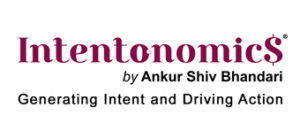Over the past decade or so, there has been a lot of focus on the word “Why”. There have been thoughts that one should try to find their own “Why” or “Purpose”. Is that the journey you have taken? How have you fared in that endeavour? Have you managed to find your Purpose? What has been the experience since then? Do you feel fulfilled or unsure about what this discovery should have brought?
I have seen a lot of interesting developments along the lines of finding the Why and the Purpose. Some of them are fantastic, very good, but some make you question that once an individual or an organisation feel they have found their Why, then what? How do you ensure that discovery is helpful in some shape or form?
There are examples such as a recent politician in the UK who came to power with great ideas, and you could say who had a clear sense of their Purpose or Why. However, they ended up having the shortest tenure ever as a Prime Minister of the Country. What do you think happened there?
Facebook bet hugely on the future of Metaverse, even going to the extent of naming their parent company on similar lines. However, despite having umpteen resources at their disposal, the realisation of that dream still seems very distant. What do you think could be the reason behind that?
The beautiful Southeast Asian country of Sri Lanka, with a clearly identified purpose of promoting Organic Farming, brought in policies to encourage the practice, but instead, it had the devastating effect of a food shortage crisis never seen of that magnitude before. Why did such a situation arise?
In all the examples shared here, the individuals and organisations had identified or discovered their Individual or Intrinsic Whys. I call them the I-Whys. The I-Why maybe is ok if you just want to feel good about yourself or live in isolation. However, in environments where Individuals and organisations depend on others for an outcome, just the I-Whys or the I-Purpose don’t really serve a Purpose.
It is essential in social environments that an individual or an organisation (Let us call them Patrons) understand How their I-Whys interact with what their social counterparts want. A social counterpart could be an individual, group of individuals, or an organisation that the Patrons interact with that has a role to play in the combined outcome. The needs or the Questions of the social counterparts could be called the Q-Why. These are the WHY questions a Social Counterpart would have of the Patrons, such as “Why should I support you in an election?”, “Why should I try Metaverse?” “Why is the sudden overnight ban on chemical fertilisers good for promoting sustainable organic farming?”
A solid and positive outcome can be expected only when there is a good balance between the I-Why and Q-Why. You might recall that in my theory of the drivers of Intent, Relevance is a crucial Intent driver. Relevance can only come when the I-Why and Q-Why are balanced. Only then do we see the formation of desired Intent and then Action.
The proof of that is all around us. For example, we have the best interests of our children at heart, which is a very strong I-Why. However, if we don’t match a direction to our child with solid reasoning that addresses their Q-Why, it is challenging to drive sustainable desired behaviour. Another example is sales practices, where I-Whys are the features of a product or service. However, if they are not communicated using the Q-Whys, i.e., the language of Benefits for the potential customers, the order book would be relatively empty.
Maybe if there were a better balance between I-Why and Q-Why, Liz Truss would still be PM, Metaverse would be much further in the Consumer adoption journey, and the culinary crisis in Sri Lanka might have been avoided
Support the show



